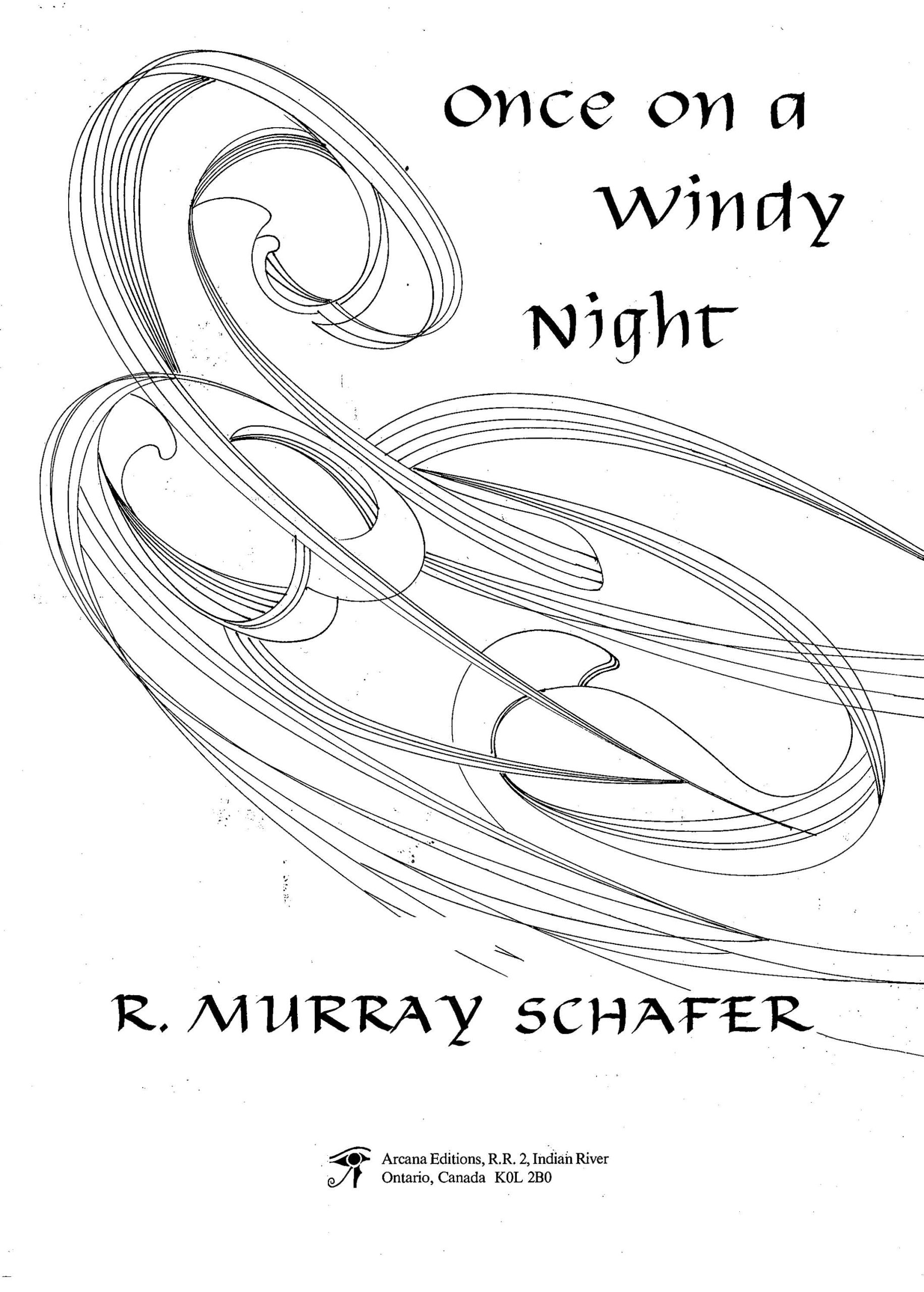You want to write a piece about the wind: no easy task. You listen to the wind. But what you write is not the wind, rather a piece of music. Tear it up. Go and listen again. Still it is not the wind that your composition expresses. Is it because you can’t hear the wind or because you’re afraid to write down what you hear? This ambivalence is in the character of the wind itself, for its sound is devious. The Greeks imagined Typhoeus as a god with a thousand heads, each with a different voice: dogs, bulls, lions, snakes… voices defying arrest or transcription. I was trying to find a way to join breath sounds with sung notes when I recalled a passage from Victor Hugo’s Les Travailleurs de la Mer. where the poet conjures up a scale of values for the various states of this equivocal noise. Hugo’s vocabulary is rich and suggestive. I decided to borrow a few words or word fragments to incorporate in the fabric of my own tone poem: rafale (gust), bourrasque (squall), orage (storm), tourmente (gale), tempete (tempest), trombe (whirlwind), and a few verbs: courant, volent, s’abbattent, sifflent, mugissent.

